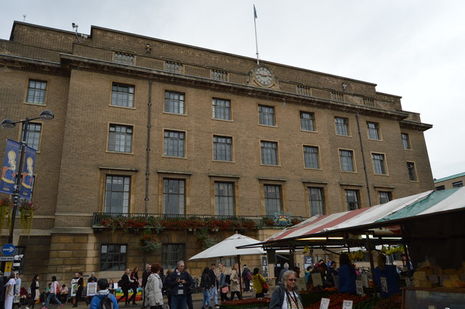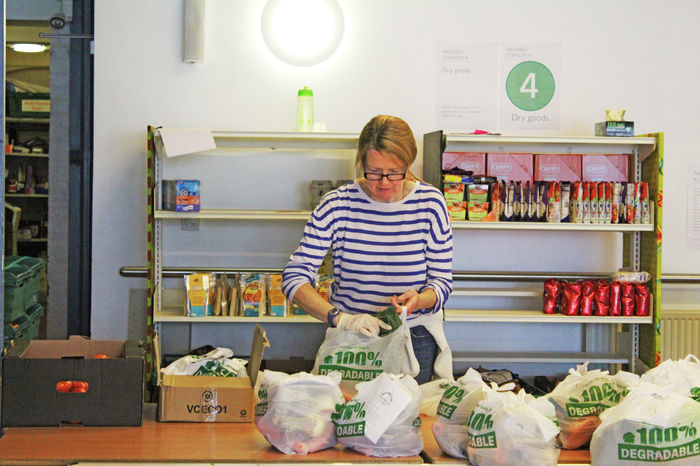Migrant justice open letter circulated amongst UK universities
An open letter signed by students across the UK calls for universities to uphold their duty of care to ‘migrant’ students and staff

Students across the UK have signed an open letter to the Vice-Chancellors and Principals of UK universities calling for universities to fulfil their duty of care to ‘migrant’ students and staff by making hardship funds more accessible, stopping hostile environment surveillance and ensuring free access to education.
“While migrants in refugee camps and detention centres face death on a horrifying scale,” the letter states, “migrant students and workers are being made destitute and denied access to crisis support.”
The campaign also follows another letter published in March signed by nearly 500 university staff and students nationwide which called for universities to suspend the monitoring of migrant members and institute the “most generous extension of visa sponsorship possible” both during and after the pandemic.
The most recent letter to Universities UK (UUK) calls for relief against hardship, and states that “nearly all students and staff who are in the UK on visas have ‘no recourse to public funds’ (NRPF), meaning they are denied most state-funded benefits and housing assistance.”
Benjamin Morgan, who coordinates the European Economic Area homeless rights project at the Public Interest Law Centre, stated in a press release that “migrants with no recourse to public funds (NRPF) were at heightened risk of destitution, exploitation and abuse even before Covid-19. Lacking a social safety net, many have been forced to seek support from already-overstretched local authorities after losing employment, accommodation or charity support as a result of the crisis.”
“The government must end the disastrous NRPF regime to ensure that all have access to care, shelter and safety, both during and after this pandemic”, he added.
NRPF is already currently under legal challenge, with the letter calling for it to be “abolished” and for universities to “break the barricade on migrants’ access to public support.”
The letter also calls for universities to make hardship funds more readily available to those affected, and for the application process to be simplified.
In Cambridge, students are required to first apply through their College by discussing their financial difficulties with their Tutor following which their applications are sent to their Supervisor and then to the University. Undergraduate students can also apply for hardship funds through their College Tutor, with awards given three times a year.
Students must also be able to demonstrate that they are currently in, or are very near to, financial hardship, as “speculative applications are not permitted”.
Niyousha Bastani, a postgraduate student working on the 'Prevent' campaign and also helped initiate the asylum housing campaign with CUSU, offered the view that the current system should be more sympathetic to the fact that the disruption caused by the coronavirus outbreak was not “accounted for when students make their financial commitment statements at the beginning of the degree.”
She furthered that students should be able to “apply centrally to the university with clear guidelines, and then have the university reach out to colleges to see if they will match or split the funding.”
The letter also expresses concerns around potential surveillance of international students to ensure compliance with visa requirements. Some students have expressed concern that Colleges might opt to utilise student data to identify which students might be in breach of such conditions instead of offering them financial support and information.
The University’s ‘All Student Notice’ from the 17th March states that the “Home Office recognises the current situation is exceptional and has stated that no action will be taken against students on Tier 4 visas who are unable to be in attendance as a result of the coronavirus in the coming weeks”.
Despite this, Bastani claims that some students have reported being contacted by Colleges in regards to their visa status.
The University did not comment on this in its response to questions raised by Varsity.
The Home Office’s temporary suspension of requirements to monitor migrants at universities comes alongside an extension from the government of frontline health and care workers’ visas, including medical staff and student visas during the pandemic.
The letter calls for universities to “take a courageous stance against the hostile environment” and “release a statement to all staff and students communicating the university’s positive stance on the suspension, and intention to interpret in a maximalist way.”
The letter’s final demand is that Vice-Chancellors support long-term public funding to ensure free access to education for all. The letter states that many home and international postgraduates are disproportionately affected.
Signatories call for universities not to “squeeze funds from precarious young migrants”, to designate “migrants” as ‘home students’ and to simplify the application process for support.
Some students have also described receiving confusing advice from the University around medical and non-medical intermissions and ‘work away’ status which can impact visa conditions.
The ‘All Student Notice’ from Senior Pro-Vice Chancellor Virgo states that “if you are asked to leave Cambridge then any residency requirements will not apply but it is important that you continue to apply for permission to work away, so that we know where you are.”
Official University guidance states that students who have coronavirus and are consequently unable to work on their studies should submit medical evidence so that they may take a medical intermission. Students who are physically able to study but cannot return to Cambridge due to the pandemic have been told to apply to work away.
The guidance has led to confusion amongst some many regarding whether or not they should apply for a non-medical intermission or work away, and what this will mean for when they can return to their fieldwork and research given their visa requirements.
“There are no reassurances that incoming students will be able to acquire permits to come and study in the UK over the summer”, History PhD student Ayse Polat told Varsity.
The University did not comment on this issue in its response to Varsity.
Bastani encourages the University and colleges to “directly contact international students and offer support and advice in navigating this situation”. This is entirely possible, Bastani told Varsity, as “they know who and where we are”.
When asked about the open letter, Councillor Richard Johnson, Executive Councillor for Housing at the Labour-controlled Cambridge City Council, stated that the government “should acknowledge the unique circumstances we find ourselves in, abandon its disgraceful ‘hostile environment’ policy, and allow foreign individuals access to benefit support”.
“That is the sensible and compassionate approach”, he added.
 News / SU reluctantly registers controversial women’s soc18 December 2025
News / SU reluctantly registers controversial women’s soc18 December 2025 Features / Should I stay or should I go? Cambridge students and alumni reflect on how their memories stay with them15 December 2025
Features / Should I stay or should I go? Cambridge students and alumni reflect on how their memories stay with them15 December 2025 News / Dons warn PM about Vet School closure16 December 2025
News / Dons warn PM about Vet School closure16 December 2025 News / Cambridge study finds students learn better with notes than AI13 December 2025
News / Cambridge study finds students learn better with notes than AI13 December 2025 News / Uni registers controversial new women’s society28 November 2025
News / Uni registers controversial new women’s society28 November 2025










